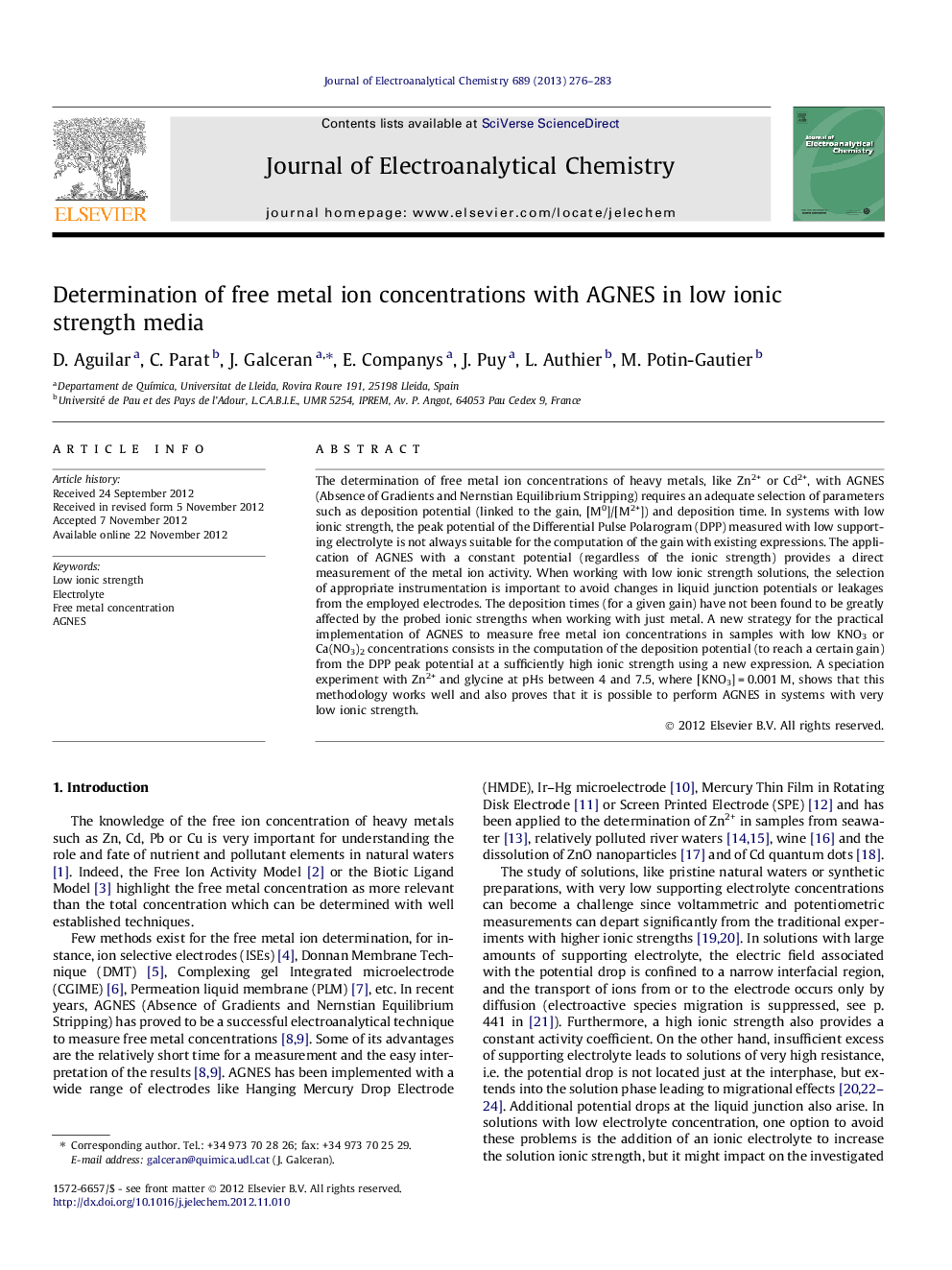| Article ID | Journal | Published Year | Pages | File Type |
|---|---|---|---|---|
| 219180 | Journal of Electroanalytical Chemistry | 2013 | 8 Pages |
The determination of free metal ion concentrations of heavy metals, like Zn2+ or Cd2+, with AGNES (Absence of Gradients and Nernstian Equilibrium Stripping) requires an adequate selection of parameters such as deposition potential (linked to the gain, [M0]/[M2+]) and deposition time. In systems with low ionic strength, the peak potential of the Differential Pulse Polarogram (DPP) measured with low supporting electrolyte is not always suitable for the computation of the gain with existing expressions. The application of AGNES with a constant potential (regardless of the ionic strength) provides a direct measurement of the metal ion activity. When working with low ionic strength solutions, the selection of appropriate instrumentation is important to avoid changes in liquid junction potentials or leakages from the employed electrodes. The deposition times (for a given gain) have not been found to be greatly affected by the probed ionic strengths when working with just metal. A new strategy for the practical implementation of AGNES to measure free metal ion concentrations in samples with low KNO3 or Ca(NO3)2 concentrations consists in the computation of the deposition potential (to reach a certain gain) from the DPP peak potential at a sufficiently high ionic strength using a new expression. A speciation experiment with Zn2+ and glycine at pHs between 4 and 7.5, where [KNO3] = 0.001 M, shows that this methodology works well and also proves that it is possible to perform AGNES in systems with very low ionic strength.
► A DPP peak potential at low ionic strength can be not reliable for gain computation. ► [M2+] in low ionic strength systems can be measured with a new AGNES strategy. ► Required deposition times are not greatly influenced by the ionic strength. ► Appropriate care to avoid leakages or liquid junction potentials is needed.
